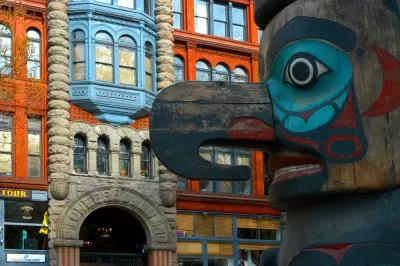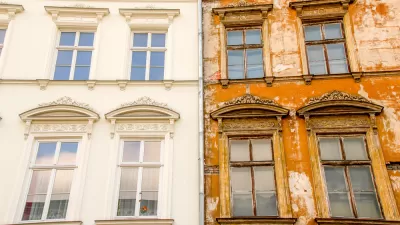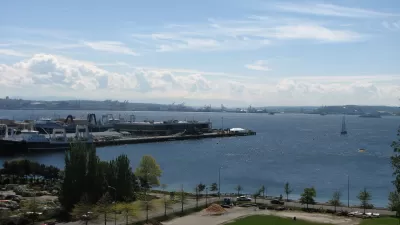The Cultural Space Agency, proposed in Seattle, would be a new type of public development authority, a city agency with a mission to preserve and create arts and culture in the face of gentrification.

Margo Vansynghel reports on an effort in Seattle to combat cultural displacement and gentrification by creating a 'mission-driven' real estate development company to "create, purchase, manage and lease property for arts and cultural spaces."
The arts and cultural spaces created by the new "Cultural Space Agency" could include galleries, bookstores, nonprofit dance companies, and cultural community centers," according to Vansynghel. "The new entity would likely also develop and manage a new 'Creative Economy Hub' on the second floor of the city-owned King Street Station."
If granted final approval from Seattle Mayor Jenny Durkan and the Seattle City Council, the Cultural Space Authority will be governed as a public development authority (PDA), also known as a public corporation, according to Vansynghel. "The Office of Arts & Culture is dedicating $1 million to fund the startup costs for the next two years, $500,000 of which is earmarked in the 2021 budget currently in deliberation, and will add money to that pot through capital campaigns and philanthropy."
The article also includes some historical perspective on the move for the city to create a PDA—usually PDAs are reserved in Washington State for the preservation of historic areas, like Pioneer Square and the Chinatown-International District in Seattle.
"With the move, the city is following in the footsteps of King County, which established the 4Culture agency in late 2002 in reaction to the post-9/11 economic recession and funding cuts at King County’s arts offices," according to Vansynghel.
FULL STORY: City launches real estate company to save and create Seattle art spaces

Alabama: Trump Terminates Settlements for Black Communities Harmed By Raw Sewage
Trump deemed the landmark civil rights agreement “illegal DEI and environmental justice policy.”

Planetizen Federal Action Tracker
A weekly monitor of how Trump’s orders and actions are impacting planners and planning in America.

The 120 Year Old Tiny Home Villages That Sheltered San Francisco’s Earthquake Refugees
More than a century ago, San Francisco mobilized to house thousands of residents displaced by the 1906 earthquake. Could their strategy offer a model for the present?

LA’s Tree Emergency Goes Beyond Vandalism
After a vandal destroyed dozens of downtown LA trees, Mayor Karen Bass vowed to replace them. Days later, she slashed the city’s tree budget.

Sacramento Leads Nation With Bus-Mounted Bike Lane Enforcement Cameras
The city is the first to use its bus-mounted traffic enforcement system to cite drivers who park or drive in bike lanes.

Seattle Voters Approve Social Housing Referendum
Voters approved a corporate tax to fund the city’s housing authority despite an opposition campaign funded by Amazon and Microsoft.
Urban Design for Planners 1: Software Tools
This six-course series explores essential urban design concepts using open source software and equips planners with the tools they need to participate fully in the urban design process.
Planning for Universal Design
Learn the tools for implementing Universal Design in planning regulations.
Ada County Highway District
Clanton & Associates, Inc.
Jessamine County Fiscal Court
Institute for Housing and Urban Development Studies (IHS)
City of Grandview
Harvard GSD Executive Education
Toledo-Lucas County Plan Commissions
Salt Lake City
NYU Wagner Graduate School of Public Service




























